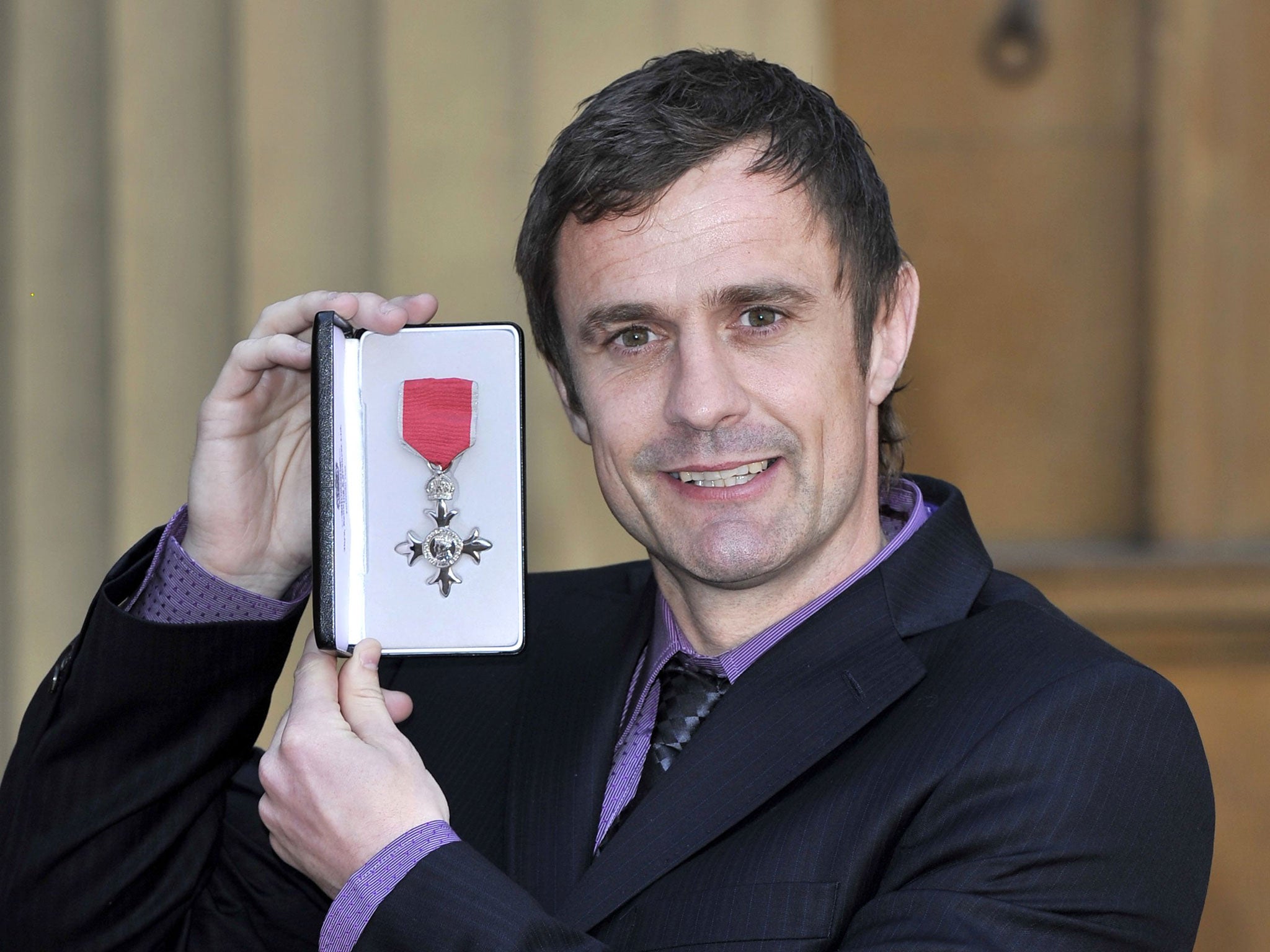Steve Prescott: Sportsman who raised hundreds of thousands of pounds for charity after being diagnosed with terminal cancer

Steve Prescott, who has died at the age of 39, would be an educated choice as one of rugby league’s bravest players – on and off the field. The first side of that equation saw him enjoy a fine career with his home-town club, St Helens, Hull and Wakefield, tour with Great Britain and represent both England and Ireland.
All this was despite him being told repeatedly that he was not big enough to be a specialist full-back in the modern game, something he went on to disprove convincingly. What was never in dispute was the size of his heart.
In 2006, three years after his retirement as a player, he was diagnosed as suffering from a rare form of stomach cancer and was given six months to live. That news came in the same week as the birth of his second son, Koby.
Prescott did the very opposite to sitting down and feeling sorry for himself. He embarked on a series of incredible physical challenges to raise over half a million pounds for charity, challenges that would have been too much for the vast majority of men in perfect health.
The Steve Prescott Foundation benefited Christie’s Hospital and the Rugby League Benevolent Fund; more than that, he showed that there is life after being told that you are in an apparently hopeless situation. He organised and took part in events ranging from boxing and cycling, to marathon running and rowing. The most spectacular feat was in 2009, when he led a group, many of them ex-players, across France on mountain bikes, across the Channel by boat and finishing with a half marathon to Wembley for the Challenge Cup final. It was with this sort of feat in mind that Prescott was awarded the MBE in the New Year’s honours list for 2010. He was also the inaugural winner of the Spirit of Mike Gregory Award, in memory of the former Great Britain captain.
Despite his size – he was never heavier than 11 stones – Prescott was destined to play rugby league football. He was the son of the St Helens, Widnes and Salford player Eric Prescott, and first began to learn his trade with his local amateur club, Nutgrove.
He signed for Saints in 1992 and made his first team debut against Leigh the following year. He quickly became a regular member of the side and was a key man in the St Helens team that won the Challenge Cup and Super League in 1996. Among his memorable contributions were two tries against Bradford in the Cup final at Wembley and four against Sheffield Eagles in the League.
Amid all that, he was called up by England for the first time, racking up a record 22 points against France in Gateshead and being named as man of the match. He also scored the winning try against Wales in Cardiff two weeks later.
At the end of the season he was named in the Great Britain squad to tour Papua New Guinea, Fiji and New Zealand. He failed to make the Test team, however, and was one of 11 players brought home early from New Zealand as a cost-cutting measure.
The following year he was a member of the side that again beat Bradford at Wembley, but at the end of the season he was unable to agree a new contract with Saints. He was one of a number of local players who felt taken for granted at the club.
Along with two others, Alan Hunte and Simon Booth, he joined newly-promoted Hull in a £350,000 transfer. Prescott played some of his best rugby there and despite a brief, ill-fated cameo at Wakefield, Hull became his second home.
He returned to play there in 2001, after he had played for Ireland in the World Cup at the end of the previous season, qualifying through a grandparent. He was a major factor in Hull’s steady improvement, but his career was ended by a broken knee-cap in a game at Bradford.
His new career was as a teacher and lecturer, although he also coached the under-16s at Hull. After his diagnosis he returned to live in the North-west, where he helped St Helens with the mentoring of their young players. Much of his remaining energy, however, went into his fund-raising adventures.
Last October he led a 48-hour marathon that involved swimming in the Humber and the Mersey, cycling across the country, running 18 miles and kayaking up the Bridgewater Canal to the Grand Final at Old Trafford. He had hoped to climb Mt Kilimanjaro, but his condition worsened this year.
All the same, Prescott had given his cancer a remarkable fight, accomplishing so much in the seven years after being given his six month “sentence.” The esteem in which he was held within the game was marked by silences – and rounds of applause – before last weekend’s World Cup matches. There is also talk of renaming the code’s main individual award, the Man Of Steel, as the Steve Prescott Award. Such has been his inspirational role over the last seven years that there would be few voices raised against that.
Stephen Prescott, rugby league footballer and charity worker: born St Helens 26 December 1973; MBE 2010; married Linzi (two sons); died Oxford 9 November 2013.
Join our commenting forum
Join thought-provoking conversations, follow other Independent readers and see their replies
Comments
Bookmark popover
Removed from bookmarks